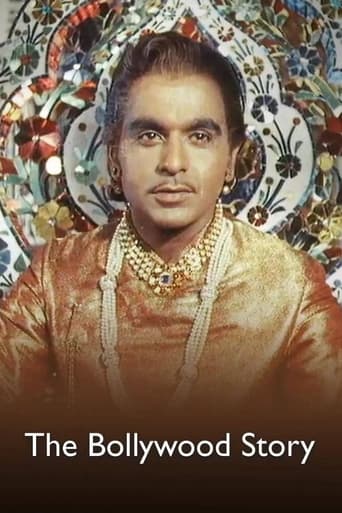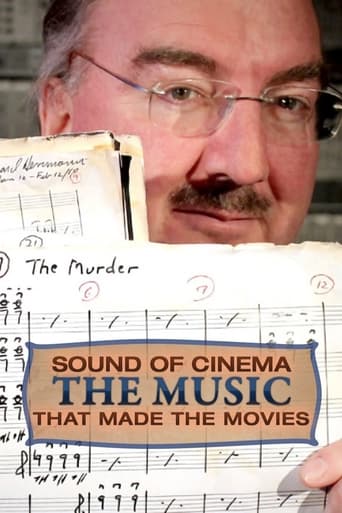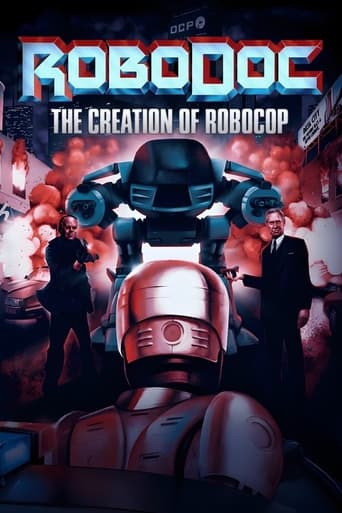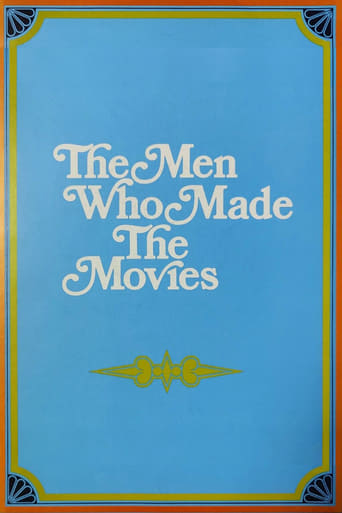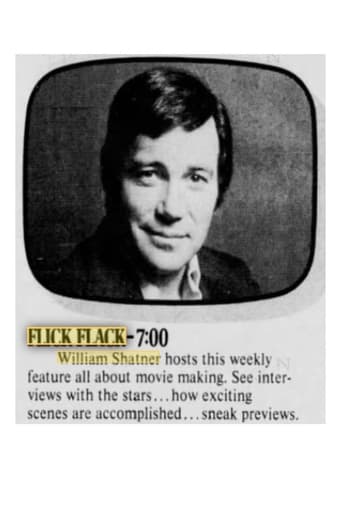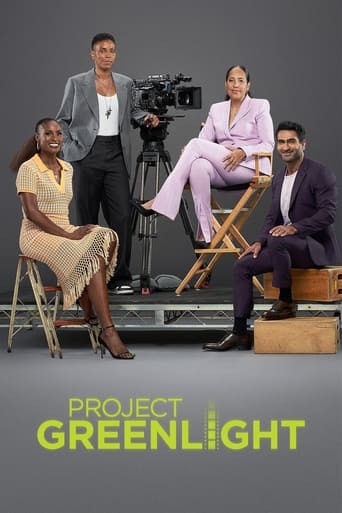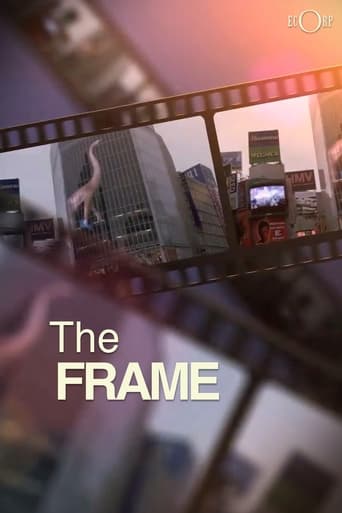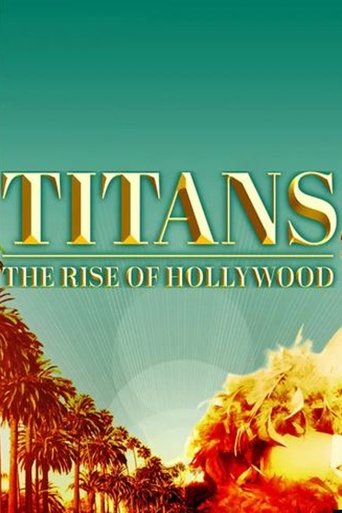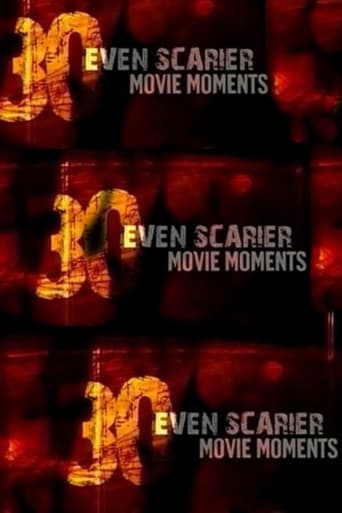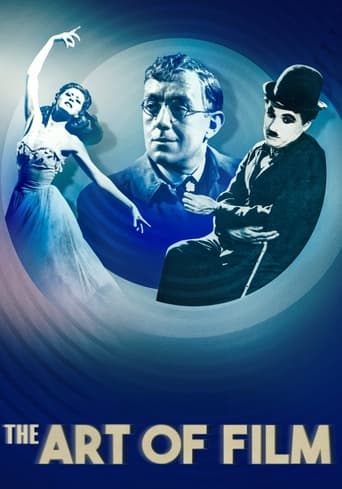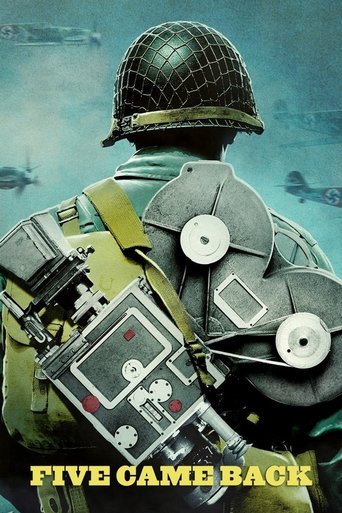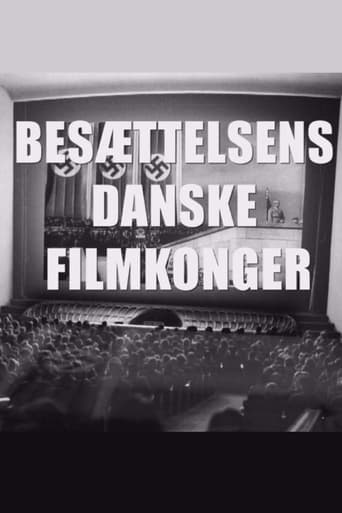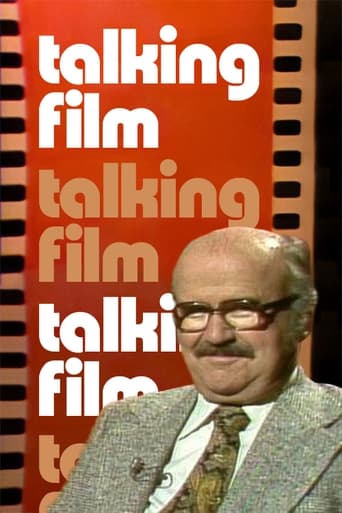










The Director
George Cukor, Roger Corman, Robert Wise, Abraham Polonsky, and Richard Brooks discuss the role of the film director.
Writing:
Release Date:
Mon, Jul 03, 1978
Country: CA
Language: En
Runtime:
Country: CA
Language: En
Runtime:
Elwy Yost
Self - Host
Season 1:

Producers David Picker and Walter Mirisch and producer-directors Robert Altman, Roger Corman, Sydney Pollack, and Stanley Kramer discuss their important roles, throwing light on what a producer does to ensure the success of a movie.

George Cukor, Roger Corman, Robert Wise, Abraham Polonsky, and Richard Brooks discuss the role of the film director.

Screenwriters John Milius, Sterling Silliphant, and Bernard Slade talk about the role of the screenwriter in filmmaking, the auteur theory, and working relationships between writers, directors, and producers.

Henry Fonda, Anthony Hopkins, Marsha Mason, Leslie Nielsen, Albert Salmi, Sidney Pollack, Roger Corman, and John Milius discuss acting methods for the stage and screen, the actor's relationship to the director, and reminisce about some of the films they have worked on.

Lee Garmes, Stanley Cortez, Haskell Wexler, and Victor Kemper discuss some of the films they have photographed and look at their varying relationships with directors and actors.

Richard Sylbert, one of Hollywood's foremost production designers (Chinatown, Who's Afraid of Virginia Woolf, Carnal Knowledge) talks about the function of the various people who work on design, and the relationship of the designer to the director.

Elwy Yost asks three American directors about favorite films they have worked on: George Cukor talks about A Star Is Born, Henry King about Twelve O'Clock High, and Vincente Minnelli reminisces about the making of Lust for Life.

The controversial twin issues of sex and violence are discussed by filmmakers Robert Altman, Roger Corman, David Picker, John Milius, Sydney Pollack, and Stanley Kramer.

Sidney Pollack, Robert Altman, John Milius, and Roger Corman voice their opinions on the marketing of films, the importance of profits, and the control they have over how their movies are sold.

Actors Henry Fonda and Frank Baker and screenwriters Nunnally Johnson and Philip Dunne reminisce about one of Hollywood's greatest film directors: John Ford.

A portrait of the last great movie mogul Darryl F. Zanuck, who ruled 20th Century Fox for thirty years, through the words of Fox personnel who knew him well. With director Henry King, producers Milton Sperling and Raymond Klune, screenwriter Philip Dunne, and actor Henry Fonda.

Ring Lardner Jr. talks about his years of blacklisting during the McCarthy era.

A creator of the documentary film, Pare Lorentz (The River, The Plough That Broke the Plains, and The Fight for Life), discusses his long career and aspects of the documentary genre.

In an exploration of the myth and reality of Hollywood westerns, Elwy Yost interviews actor Joel McCrea and directors John Sturges, Robert Aldrich, and Mark Rydell.

Host Elwy Yost visits several Hollywood landmarks: the sidewalk in front of Grauman's Chinese Theater, the Beverly Hills Hotel, and Paramount Studios. Yost talks to actors Richard Arlen, Buddy Rogers, and Pat O'Brien about Hollywood past and present.

The legendary motion picture director responsible for such screen classics as Shane and A Place in the Sun is recalled by his son George Stevens, Jr.

A look at the role of the motion picture critic with guests John Simon of New York magazine and Andrew Sarris of the Village Voice.

George Pal (When Worlds Collide and War of the Worlds) and Colin Chilvers (Superman) discuss special effects.

Elwy Yost discusses techniques employed in the making of horror films, both classic and contemporary.

Elwy Yost talks with veteran Warner Studios animators Chuck Jones and Friz Freleng.

Elwy Yost talks with director John Huston (The Maltese Falcon, The African Queen, and The Man Who Would Be King) about his long career and his relationships with Orson Welles, Humphrey Bogart, and Truman Capote.

Actor-director John Howard, cameraman George Folsey, and Frank Capra Jr. reminisce about the life and works of the American director Frank Capra.

Husband and wife Andrew Sarris and Molly Haskell describe their careers as film critics, the difficulty of maintaining objectivity in film reviewing, contemporary trends in filmmaking, and the effect of their careers on their lives.

British filmmakers Michael Powell and Emeric Pressburger talk about their careers and the films The Life and Death of Colonel Blimp and Stairway to Heaven; cameraman Jack Cardiff, actor David Niven, and film writer Leslie Halliwell describe what it was like to work with them.

Elwy Yost and industry craftspeople review the past thirty years in British cinema, including the present trend to produce dramatic television series rather than feature films. With cinematographer Jean Coquillon and actors John Justin, Anna Neagle,George Cole, and Hayley Mills.

David Niven, Margaret Lockwood, and Phyllis Calvert discuss the work of British directors David Lean and Sir Carol Reed.

A conversation with actor Buster Crabbe and director William Witney about the making of the serial cliffhangers of the 30s and 40s.

Elwy Yost interviews director Henry Hathaway (Lives of a Bengal Lancer, Kiss of Death, How the West Was Won, and True Grit). James Stewart, Richard Widmark, Pauline Kael, Hal Wallis, and Jet Fore share their recollections of Hathaway.

Interviewing some of today's most successful directors - Stanley Kramer, Robert Aldrich, and Richard Brooks.

Explores the art of making motion pictures with film designer Saul Bass, director Robert Aldrich, and photographer William Fraker.

Elwy Yost discusses cinematographic technique in action films with film designer and consultant Saul Bass, photographer William Fraker, director Franco Zeffirelli, actor Jon Voight, and makeup artist Bob Dawn.

Film critic Pauline Kael talks about her career and the reactions to her harsh reviews.

Actors David Niven, Henry Fonda, Janet Leigh, and Vincent Price; composer Henry Mancini; director George Sidney; and producer Hal Wallis discuss the phenomenon of movie idols.

Elwy Yost discusses the films of director Elia Kazan with actors Karl Malden, Richard Widmark, and Albert Salmi.

A look at how suspense is developed, through the films of directors Alfred Hitchcock and Henri-Georges Clouzot and discussions with actor James Stewart, actress Janet Leigh, critic Pauline Kael, filmmaker Saul Bass, and director John Badham.

Actor John Justin and director Michael Powell discuss Sir Alexander Korda's 1940 film The Thief of Baghdad, and actor Sir John Clements reminisces about his work in Korda's 1939 film Four Feathers.

Guests discuss how Twentieth Century-Fox operated and flourished during its heyday. Featuring producer Milton Sperling, studio publicist Jet Fore, music department head Lionel Newman, production manager Raymond Klune, and actor Vincent Price.

Elwy Yost questions the film director about his numerous works, which include Anatomy of a Murder, the once-controversial The Moon Is Blue, and Advise and Consent.

The second of two programs about director George Stevens, one of Hollywood's most talented filmmakers. Elwy Yost talks with actors Joel McCrea and Charlton Heston, screenwriter Evan Moffat, and editor William Hornbeck about their memories of Stevens.

Elwy Yost's guests - director George Sidney and actors James Stewart and Richard Widmark - talk about veteran film director John Ford, whose films include Stagecoach, My Darling Clementine, and How Green Was My Valley.

The renowned director talks about his career and the artists he has launched.

Elwy Yost talks with three Hollywood producers - Richard Roth, Albert S. Ruddy, and Frank Yablans - on how they come up with ideas for movies.

Film critics Arthur Knight and Charles Champlin discuss the ethics of criticism and their favorite movies.

A conversation with Sam Fuller, director of Pickup on South Street, about his experiences as a crime reporter and his thoughts on cult films.

Three writers - Joan Tewkesbury, Harriet Frank Jr., and Nancy Dowd - discuss their writing techniques and their work with various directors.

Stewart Granger discusses the advantages and disadvantages of being a film star and his relationship with directors Compton Bennett, Sir Carol Reed, and George Cukor.

King Vidor, who directed his first film in 1918, talks about The Big Parade, The Crowd, and War and Peace, and offers views on the maturation of movies.

A visit to the set of Pennies From Heaven where Elwy Yost talks with the production designer, costume designer, set decorator, and choreographer.

Richard Widmark, James Stewart, Henry King, Harry Carey Jr., Henry Hathaway, and Hal B. Wallis reminisce about early westerns.

Elwy Yost talks with composers Miklos Rozsa, Henry Mancini, and David Raskin about the role of music in movies.

Elwy Yost talks to Joseph Biroc about the distinct photographic styles of film studios and to Joseph Walker, the inventor of the zoom lens.

In this examination of the craft and magic of special effects in the movies, host Elwy Yost interviews Bruce Pittman, special-effects specialist Joe Zomar, and optical-effects genius Linwood Dunn.

American director Henry King discusses his film career, which began in 1915 and includes Jesse James, The Gunfighter, and Twelve O'Clock High; film clips of Gregory Peck and Harry Morgan.

Elwy Yost talks to Pare Lorentz, director of films from the 1930s.

Richard Widmark talks about the difficult craft of acting.

Elwy Yost talks to Frank Capra about his film career.

Gregory Peck, Harry Morgan, Jack Elam, and Albert S. Ruddy discuss the development of western films.

Elwy Yost interviews actor Jack Lemmon about his career, his early failures, his first big break, and his experiences with Marilyn Monroe, Tony Curtis, Billy Wilder, and Delmer Daves.

Guests: Betty Robin, Monroe's assistant; Tom Ewell; Jack Lemmon; John Houseman; Brooks Clift; and Edward Dmytryk.

Elwy Yost interviews comedy screenwriters Irving Brecher, Nat Perrin, Robert Pirosh, and MGM story editor Sam Marx about their work with Groucho, Harpo, Chico, and Zeppo Marx.

Elwy Yost interviews Hollywood director Rouben Mamoulian (Blood and Sand, Dr. Jekyll and Mr. Hyde, Queen Christine, Summer Holiday, and The Mark of Zorro), who distinguished himself with a fluid and rhythmic style.

Interviews with people associated with the big Broadway musicals, including actors Gene Raymond, Ray Bolger, and Rudy Vallee, and dance director Hermes Pan who worked with Fred Astaire and Ginger Rogers.

Adapting stage musicals to the screen with composers Saul Chaplin, Nelson Riddle, and John Green; songwriter Leo Robin; musicologist Miles Kreuger; and lyricist Sammy Cahn.

The job of the screenwriter. Guests: Sterling Silliphant (The Poseidon Adventure and The Towering Inferno), Norman Corwin (Lust for Life), Daniel Taradash (Desiree), Andrew V. McLaglen (Fool's Paradise), Nicolas Meyer (The Seven Percent Solution), Robert Pirosh (The Young Lions), Richard Brooks, David S. War, and Lindsay Anderson.

A look at the dark side of the Hollywood picture with authors Bob Thomas and Tony Thomas; Steffi Sidney; actors Cornel Wilde, Cesar Romero, and Tom Ewell; screenwriter Art Arthur; and director Lindsay Anderson. Richard Lamparski, author of the book Hidden Hollywood, talks about the destructive effects of fame.

Interviews with Selznick's son Daniel Mayer Selznick, Lyle Wheeler of MGM Studios; Ron Haver, author of David O. Selznick's Hollywood"; actors James Stewart, Janet Leigh, Tom Ewell, and Richard Deacon; director Richard Franklin (Psycho II); and screenwriter Sterling Silliphant.

In the conclusion of a two-part look at the role of the producer in the filmmaking process, producers Tony Bill, Ralph Bakshi, Tamara Asseyev, and Alex Rose offer comment and insights from their own careers.

Hollywood stars on the subject of being famous: Ray Bolger, Noah Beery, Jr., Leon Ames, Carl Reiner, Rudy Vallee, Margaret O'Brien, Janet Leigh, Tom Ewell, Kirk Douglas, Virginia Mayo, Cesar Romero, John Houseman, Richard Deacon, Jack Lemmon, Ralph Bellamy, Cornel Wilde, and Eddie Quillan.

Film historian William K. Everson on the mystery film and the portrayal of the detective on screen. Discussed are the Charlie Chan, Thin Man, and Sherlock Holmes series. Also with actors Leon Ames, Cesar Romero, Kirk Douglas, Ralph Bellamy, and Keye Luke; screenwriters Philip Yordan, Nicholas Meyer, Art Arthur, and Irving Brecher; and director Lindsay Anderson.

Elwy Yost discusses the films of Jeanette MacDonald and Nelson Eddy and interviews MacDonald's husband, actor Gene Raymond, and Bill Blass who wrote her biography.

Composer-conductor Jay Livingston, writer-film historian Tony Thomas, and actress Gloria Jean are among Elwy Yost's guests who discuss Bing Crosby and Bob Hope's road movies. (60m) [1 of 8]

Academy Award-winning actress Greer Garson recounts her experiences in the movies and shares glimpses of her life.

Elwy Yost discusses the life and work of director Preston Sturges with Sturges' widow; James Curtis, author of the Sturges biography "Between Flops"; L.A. Times film critic Sheila Benson; and actors Lionel Stander, Rudy Vallee, and Eddie Bracken.

Elwy Yost looks at the work of director-writer Preston Sturges, including The Great McGinty, Sullivan's Travels, and The Palm Beach Story. Rudy Vallee, James Curtis, Sandy Sturges, Cesar Romero, and Eddie Bracken are interviewed.

Elwy Yost interviews Richard Fleischer, who began his career as a film editor; and Ronald Neame, who began as a cameraman.

Discussion of the film director and writer. Guests include screenwriter I.A.L. Diamond, writer Maurice Zolotow, film critic Sheila Benson, lyricist Ray Evans, composer Jay Livingston, and actors Tom Ewell and Jack Lemmon.

Elwy Yost talks with authors and film critics Richard Schickel (Time magazine) and David Robinson (Times of London).

The life and career of Cecil B. DeMille and Jesse Lasky.


